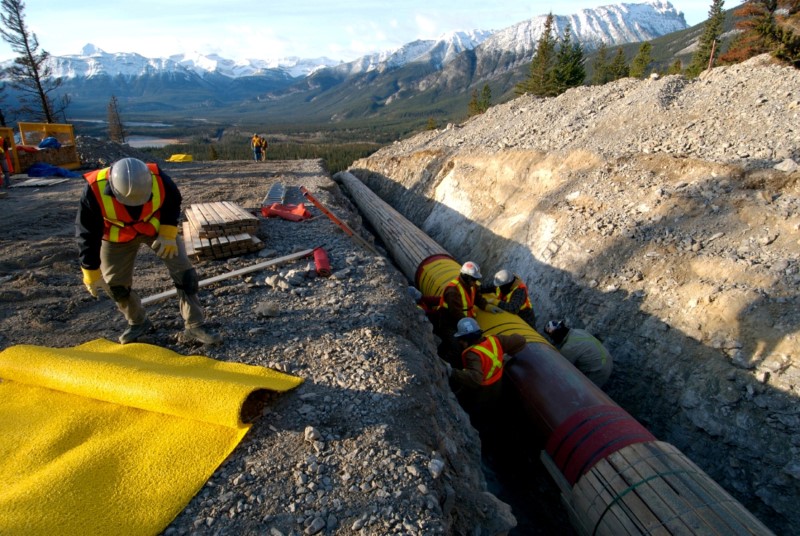By David Ljunggren
OTTAWA, Oct 3 (Reuters) - Canada will not appeal a court ruling that overturned its approval of an oil pipeline expansion project, opting instead for more consultations with aboriginal groups unhappy about the plan, a top official said on Wednesday.
The problem-plagued bid to almost treble the capacity of the Trans Mountain pipeline is becoming one of the biggest political challenges for the Liberal government of Prime Minister Justin Trudeau in the run-up to an election in 2019.
In August, the Federal Court of Appeal said Ottawa had failed to adequately consider aboriginal concerns before giving the green light to the expansion.
That same month, amid increasing protests by aboriginal and environmental activists, Ottawa bought the pipeline from Kinder Morgan (NYSE:KMI) Canada Ltd KML.TO .
"The government will not appeal the court's decision ... we are going to do things differently this time," Natural Resources Minister Amarjeet Sohi told a news conference.
Instead, Ottawa will reinitiate consultations with all 117 indigenous groups who would be affected by plans to pump more oil from Alberta to the Pacific province of British Columbia.
Trudeau, who has said the pipeline is intended to help diversify exports away from the United States, told reporters on Wednesday that appealing the court ruling could have taken years.
The official opposition Conservatives accuse Trudeau of botching the pipeline effort and say he is opposed to energy development. Canada has the world's third-largest proven oil reserves.
Last month Sohi directed the National Energy Board regulator to conduct a new review of the application. oil producers say the expanded pipeline will help resolve bottlenecks that have resulted in steeply discounted prices for their crude.
The British Columbia government, environmental groups and some municipalities and aboriginal communities oppose the idea, citing the impact of spills and expanding oil production.
Sohi said on Wednesday that he would not impose a time limit on the consultations but added that "we are not starting from scratch", given the government already had plenty of information from earlier discussions.
He also reiterated that there would be no aboriginal veto over the project. Indigenous communities insist they have the final say over projects which would cross their land.
